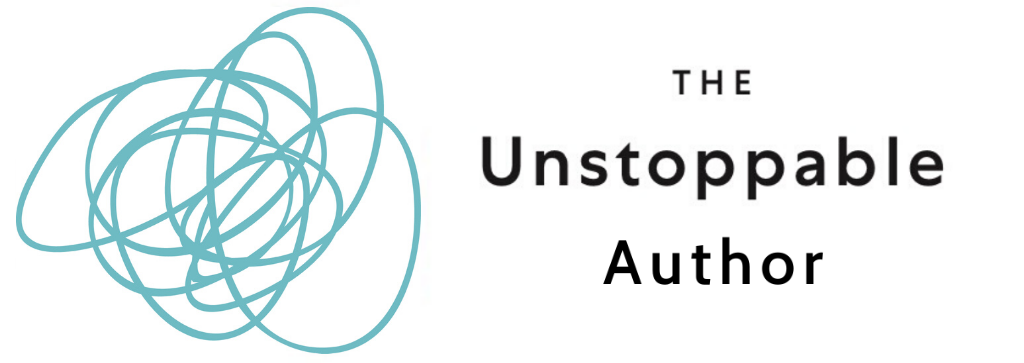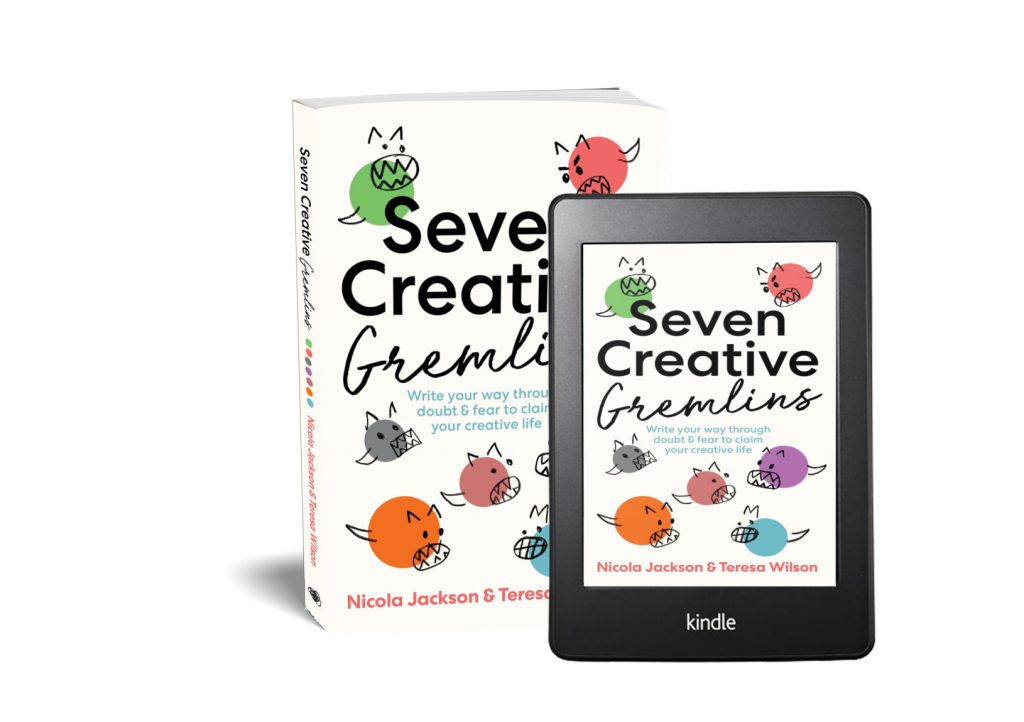“Being a writer means to be out of your depth most of the time. Which is why when we are faced with a writing session, we often go looking for something that feels more manageable instead”
Author Nicola Jackson and life coach Teresa Wilson reveal how to pacify the Procrastination Gremlin
So far in this series, you’ve got past some pretty heavyweight Gremlins and hopefully by now you’re able to immerse yourself in your creativity, knowing how to quieten those nagging voices. But then other certain intrusive thoughts begin to appear. Like, you feel compelled to watch the first auditions of every candidate on ‘American Idol’. Or you notice that your curtains need hoovering. Or you need to plot your daily coffee consumption on an Excel spreadsheet.
Introducing, the Procrastination Gremlin.
This Gremlin can sense when it looks like you might actually be en route to completing your creative journey and that’s when it pops up in the middle of the road with a big sign offering half-price ice cream sundaes, if you’ll just stop the car right here.
The Procrastination Gremlin’s only job is to stop you from creating. It wants you off the road. And it has a million and one tricks up its sleeve to achieve that. The distraction may be fun, and feel like a naughty diversion. Or it might involve drudgery, and feel like a penance. Frankly, the resourceful Procrastination Gremlin doesn’t really care what it does to get you to quit; as long as you do. It’s betting that once you stop off on your journey, you’ll never start again.
THE THIEF OF TIME
You’ll know if you’ve been accosted by the Procrastination Gremlin because, although you definitely sat down intending to do some writing, you find yourself deep-cleaning your oven.
If every time you get back on your creative road trip, Procrastination Gremlin pops up with yet another enticing sign and you dutifully pull over, well, chances are one of two things will happen. One is that you’ll lose your connection to your creativity, your writing will start to stall and you’ll convince yourself that this writing malarkey was a terrible idea. That you’re not meant to be on this creative journey anyway. And you’ll turn the car around and go back home. The other is that you’ll stay on the same journey forever, writing the same stories for years, making only miniscule progress before the Procrastination Gremlin appears and drags you off on yet another flight of fancy. And, in fact, the second outcome is worse, because you’ll really believe you are still on your way to finishing a piece of writing, little realising that Procrastination can keep you occupied forever.
WHY THE PROCRASTINATION GREMLIN IS SO PERSUASIVE
We know that procrastination is a problem. But why? I mean, if we have already decided that writing is something we want to do, why are we so easily distracted by other activities that don’t bring us anywhere near as much satisfaction and joy?
Well, it turns out that this fickle behaviour can be down to Low Frustration Tolerance, or LFT for short. LFT is a term which was coined by psychologist Albert Ellis, one of the early forefathers of Cognitive Behavioural Therapy. It describes how our inability to tolerate discomfort causes us to avoid that which we can’t resolve quickly and easily. That means that if we’re not aware of LFT being at play, then whenever we’re faced with the uncertainty of the blank page, the challenge of beginning, or the difficulty of resolving an issue or problem in our work, we’ll procrastinate. We’ll avoid the discomfort. We’ll find something that will deliver instant gratification instead.
ZERO TOLERANCE GAME
Being a writer means to be out of your depth most of the time. Which is why when we are faced with a writing session, we often go looking for something that feels more manageable instead. Trouble is, this is a short-term fix that just leads to long-term misery. We get our little dopamine hit but there’s no satisfaction because we’re not able to develop projects sustainably in the way we want. And if you’re going to complete your creative journey, you need to be able to endure short-term difficulty to get to the finish line.
So how do you learn to stay focused, resisting the Procrastination Gremlin as it pesters you along your creative journey with its enticements to stop and have some fun or take care of some supposedly urgent task?
GETTING PAST THE PROCRASTINATION GREMLIN
You’re probably getting used to us telling you by now that our Gremlins aren’t the wicked beasties that they might at first appear to be. And the Procrastination Gremlin is no exception. It’s only standing out there on that road waving its signs around because it is terrified of creativity and the threat it poses. Let us explain.
Humans are ancient beings and we carry our ancestors’ instincts: When we perceive threat our body responds with a great surge of adrenaline preparing us for fight/flight/freeze. The key word we want to bring to your attention is perceive.
For our ancestors, it was pretty easy. See a woolly mammoth? Get the hell outta here!
But for us? I said I would write for an hour this morning. Get the hell outta here!
It isn’t the same kind of threat at all, and yet our limbic system may be flooding our body with the same hormones that induce panic and fear. Why? Because we perceive a threat. We don’t know how the session is going to go. We don’t know if we’re going to pull off what we hoped to. We don’t know if we’re going to mess it up and threaten our sense of identity as a competent, creative, talented writer. So, we panic, like a Neanderthal that’s just seen a woolly mammoth.
But notice again that we say perceive to be a threat. This is good news. Because perception is simply another way of saying ‘a story that we’re telling ourselves’. And, as we have already learned, if we want to, we can change any story that we’re telling ourselves.
Here are a couple of ideas:
NOTICE
If you find that you’re agitated, distracted and can’t sit still, then your limbic brain is probably stimulated. The first crucial thing to do is simply notice that this is happening, without judgement. Say to yourself, “Oh, I notice that I really want to go and sort that ironing out right now instead of writing this scene. How interesting.”
The next step is to take a few deep breaths, particularly focusing on the out-breath. The out-breath activates the parasympathetic nervous system, which turns off the flight/fight/freeze hormones, settling your system down so it can think more clearly.
Next, spend five minutes journalling, pouring out what’s in your head, and start to notice what you are telling yourself about why you don’t want to write today.
Alternatively, you might want to approach the journalling with a prompt, asking yourself, “What is my positive intention for this session? How do I want to feel as I sit down to write?” This takes your mind away from the challenge or difficulty of what you are producing, and instead invites you to consider how you want to feel during the process; bringing you right back to the present moment. A place where you have choice and free will. Where you have the option of, well, enjoying yourself, rather than using the writing as a form of self-torture.
It’s important that you don’t criticise yourself for not wanting to write. It’s perfectly natural. But recognising this an important first step, and will start to give you enough distance from being in that state to allow you to change your state.
REWARD YOUR EFFORTS
We’ve been telling you from the start that the writing process can at times be hard. So, it’s important to recognise your efforts as you go along in order to help the mind associate effort with reward. When it comes to reward, get creative and find what works best for you.
Break it down: “Once I finish my 30 minutes, I will treat myself to a coffee.”
Build it up: “At the end of every month, I will reward myself with a lunch out with a friend.”
Give yourself a gift: Wrap up small presents for yourself and open one each time you reach a milestone, such as every 10,000 words, or every five writing sessions successfully completed.
Whatever you do, make a point of really owning the moment. Celebrate achievements big and small. Bring your awareness to how good it feels to get to the end of that 30-minute session, or that 1,000-word goal. Strengthen the relationship in your mind between enduring short-term frustration and gaining the satisfaction of reward. Retrain your brain, one chocolate doughnut at a time.
PROCRASTINATE WITH PURPOSE
Now, there’s nothing wrong with cleaning the oven, watching TV, or chatting online. And the last thing we want to do is demonise these activities, mainly because our Gremlins see hard boundaries and tend to run at them, screaming “WHHHYYY” in a daytime soaps-like fashion. They’re just like that. Better for us then that we hold soft boundaries and allow ourselves to procrastinate with purpose. How do you do that? Aim for something truly mindless. Clean the skirting boards. Shampoo the dog. Did you know that Bill Gates used to do the washing up? You know, billionaire Bill Gates. Busy global business man. Why did he like to do his own dishes? Because he understood that the brain thrives when we let it get bored.
And maybe, armed with this new information, the next time the Procrastination Gremlin waves a sign in front of you, instead of screeching to a halt and abandoning your vehicle, you’ll just calmly check the time and say, “I’m fine for distractions right now thanks. But I’ll meet you in 40 minutes for an ice cream sundae.”
This is an abridged excerpt from Seven Creative Gremlins: Write your way through doubt and fear to claim your creative life by Nicola Jackson and Teresa Wilson. Find it here for £1.99 ebook/£6.99 paperback.
How to stop procrastinating and get some writing done


